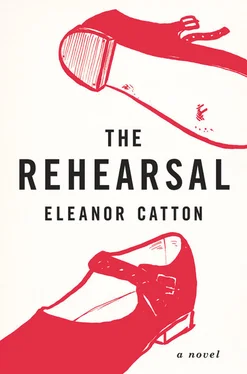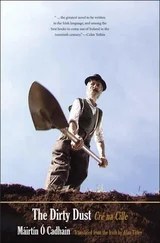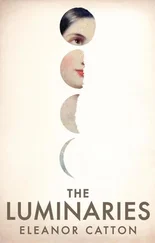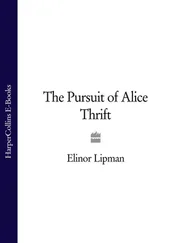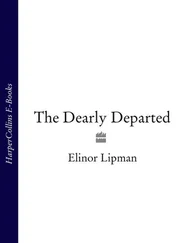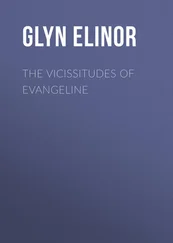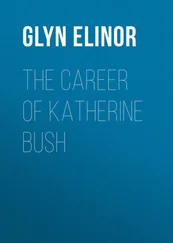“Anyway, well done, old thing,” Brian said, reaching across and covering the saxophone teacher’s hands with his own. “It all starts here.”
Friday
As Isolde unpacks her case the saxophone teacher talks enthusiastically about the upcoming recital, the venue and the other performers, and the chance for everybody to listen to everybody else. Isolde is not listening. She is going to mention the saxophone teacher’s complaint about Stanley. The thought of bringing it up makes her heart thump, and the advance phrasing of the question paralyzes her, consumes her utterly. She senses that the topic is dangerous, that she is somehow backfooted at the outset: she has done something wrong without her knowing, and she will lose.
There is a knock at the door.
“Hang on a minute, Isolde,” the saxophone teacher says serenely. “I think that’s probably Julia.”
“What?” Isolde says.
“I thought we could try the Raschèr duet with both of you together,” the saxophone teacher says. “You’ve each been learning one part and I thought it would be fun to bring them together properly.”
Isolde goes red. She looks at the saxophone teacher without speaking for a moment, and then says, “I didn’t know I was going to play it in a duet.”
“Well,” the saxophone teacher says, “I wasn’t sure if Julia would be able to make this Friday slot. It was kind of a last-minute idea. It really is worth playing against someone else, you know. There’s a whole new enjoyment to be got out of playing with another person.” She doesn’t advance to get the door: she hovers near Isolde, hands on her hips, and surveys her student.
“I would have practiced,” Isolde says. “If I’d known.” Her mouth is suddenly dry.
“You remember Julia, don’t you?” the saxophone teacher says.
“Yes,” says Isolde.
“Wonderful.” The saxophone teacher walks swiftly to the door to release the latch. “Welcome,” she says to the older girl.
“Hello, darling,” Julia says as she sweeps in, and all in an instant Isolde knows that Julia has stepped out of herself and become somebody else entirely: she is performing, and Isolde must too.
“Honey,” she says, and they kiss on the cheek like old friends, like thirty-something friends who were once teacher and pupil, once upon a time. The saxophone teacher has melted into the shadows by the wall.
“I know this is meant to be a rehearsal, Patsy, and there’s work to be done,” Julia says, “but I do need to talk to you. After what happened between us. I’m sorry to spring it on you like this. I’ve been going through what I want to say in my head, over and over, out there in the hall, and I think I just need to spit it all out before I’m too afraid to speak of it. That’s all. Is it weird?”
“It’s not weird,” Isolde says softly, but she takes several steps backward, away from the other woman. Her saxophone is in her hand. Julia’s sax is not yet out of its case, so they appear unevenly matched, Isolde with the bright arm of her instrument held close against her chest and Julia weaponless with her hands upturned to show the white of her palms.
“It just seems so desperately unfair,” Julia says. “That I am marked so indelibly, so ineffaceably, tattooed and blue with the ink of your name across my heart, and that your ink is washable, Patsy. It was always washable, and you knew that all along.”
“Come on, darling,” Isolde says. “You’re talking about just one kiss. You’re talking about a single red-wine-flavor of a kiss, in the dusky dark of one late evening, riding on the giddy thrill of a concert that sent your pulse to racing.”
“Yes,” Julia says, vehemently.
“A one-off.”
“Yes,” Julia says again.
“Come on,” Isolde says again, but weakly now. “We’re overreacting, surely. We’re behaving like teenagers.”
There is a pause and they look at each other.
“I think that this is worse than any other shame,” Julia says. “To be rejected not because of circumstantial reasons, or provisional reasons, or reasons of prior claim, but simply for the unitary and all-quenching reason that I am, and will always be, unwanted . I feel spotlit, pinned against the bright wasteland of a bare stage, with nothing to hide behind, nothing to blame.” She gives a cruel hard little laugh, not her own. After a moment she says, “Can’t you just tell me why? Can’t you just tell me why it’s Brian, and it isn’t me?”
Julia advances several steps. The other girl does not retreat. They are closer now, and Isolde looks her in the eye for a long moment before she speaks.
Isolde says, “I had always imagined that any woman’s choice to be with another woman would be a reactionary choice, defined mostly in the negative by the patterns she is seeking to avoid. It would, I always thought, only be after deciding she does not want men that a woman might conclude that she wants other women. It is a public stance, itself a kind of activism. It is a complaint. It marks a dissatisfaction. It is the kind of attitude only held by a particular type: emphatic, campaigning, radical, the kind of woman who would boycott certain companies on moral grounds, who would picket outside a factory gate.
“I recognize a shade of this quality in you—the hardness of your opinion, your skepticism, the implicit challenge every time you speak. But there is another quality of yours that dawns strangely on me—a childlike helpless quality of vulnerability, a need. It is this quality that has awakened a new possibility in my understanding of the world: that a woman’s choice of another woman might be a free choice in and of itself, not a handicapped pick of second-bests, not a halved choice of remainders once the men have all been censored and removed. This positive definition—that a woman might love another woman simply in and for herself—is what makes me feel nervous.”
“Nervous, why?” Julia says, and takes another step toward her. Instinctively she reaches out with her thin red hand and catches Isolde’s fingertips in hers. Isolde doesn’t pull away. She looks down, watches their hands for a moment, Julia’s bony ink-stained thumb moving in a light caress over her knuckles. Her hands are cold.
“You want me to explain this burgeoning something with Brian,” Isolde says, looking up again, “which may or may not ripen to a fruit. But I don’t think I did actively choose between you, representative of women, and Brian, representative of men. Instead I placed myself in a position where I didn’t have to choose. I let myself be his temptation; I behaved as passively as possible and did nothing as he advanced. It was the marshy fogbound unmapped depths of you that made me nervous, darling. What I wanted was something protected, something proved. I wanted a default feeling, not a nervous uncertain forbidden-place of a feeling where everything was overlaid with fear and even guilt. I don’t want to be seduced. I just don’t want it. I want to be comfortable.”
“How can that be what you want?” Julia says. “How can it be?”
“It is,” Isolde says. “In the end. It just is.”
Julia steps forward and kisses her on the mouth, and all in an instant they’re back in the smoky fug of the bar, and the last number is playing, the last song. They’re in the corner and they’ve just got up to leave, to wrap themselves back into their scarves and their coats and turn their smiling faces to the band as a final show of appreciation, a kind of farewell. Patsy turns to the saxophone teacher to say something but whatever she was going to say dies on her lips. Her eyes flicker down to the saxophone teacher’s mouth, and then the saxophone teacher leans over and kisses her, her gloved fingertips against the other woman’s cheek.
Читать дальше
